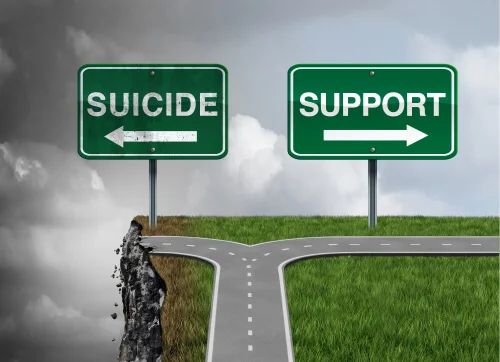Mr. Sehgal took a home loan of Rs. 20 lakhs against his term insurance cover of Rs. 40 lakhs. During the policy term (12 months post the issue of term policy), Mr. Sehgal committed suicide due to depression, but the home loan liability did not get passed on to his dependents. Instead, the insurer repaid the home loan as per the suicide clause of the term policy, since this information of assignment of policy was received by the insurer before the date of Mr. Sehgal’s death.
According to a research conducted by the Public Health Foundation of India on suicide rates in India between 1990 and 2016, India accounts for a growing share of world’s suicides. As of 2016, India’s suicide rates exceed the global averages, and the causes of suicide deaths in India have been linked to factors like financial debts, lifestyle ailments, mental illness, higher education levels and lower fertility rates. The increase in suicide rates since 1990 may have, perhaps compelled the Insurance Regulatory Development Authority of India (IRDAI) to amend the suicide clauses for life insurance policies such as term policies bought after 2014. For term policies issued before 1 January 2014, the nominee is not entitled to any death benefit in case of the insured’s death caused due to suicide.
Does term insurance cover suicide?
Term insurance does cover suicide, and it financially helps the emotionally distraught family of the insured by paying back some premium amount. However, in reality, it all depends on the terms and conditions of the policy. Term policies issued from 1 January 2014 provide suicide death cover to the insured’s family subject to following terms and conditions:
- Suicidal death cover of a term insurance plan is applicable after 12 months of policy issue or 12 months after the policy revival. If the insured’s death is caused by suicide in the above-mentioned circumstances, the nominee is eligible to be paid the full sum assured or the death benefit as per the policy clauses. The coverage of suicidal death after one year was to prevent insurance frauds where an individual stuck in financial debt would want to take an undue advantage of buying a term policy and then commit suicide for his family to claim the death benefit. Insurers assumed that this one-year duration would be sufficient enough to discourage policyholders from taking such extreme decisions for the sake of money.
- However, this above clause for term insurance has been further relaxed to cover suicide deaths occurring within 12 months of term policy issue, or policy revival. If the insured commits suicide within 12 months of term policy issue or revival, the nominee is not entitled to receive full death benefits, but the insurer may just pay the nominee a benefit that equals to a certain percentage of premium paid during the policy term by the policy holder. Term insurance plans such as the Future Generali Flexi Online Term plan pay the nominee 80 percent of the premiums paid as death benefit, if the policyholder commits suicide within 12 months from the policy issue date. Similarly, if the policyholder commits suicide within 12 months from the date of the plan revival, only 80 percent of the premiums paid shall be payable as death benefit to the nominee.
Exclusions of Suicide Cover in Term Insurance
Coverage of suicide under term insurance is excluded in certain situations when the nominee’s claim shall be rejected by the insurer:
- If the policy holder dies within 12 months of term policy issue or revival, the nominee shall receive only a certain percentage of policy premium paid by the policyholder, provided the policy is in force and if the policyholder’s age at entry or revival is above 8 years.
- If the term policy has lapsed without realizing the paid-up value, no claim shall be paid to the nominee in case the policyholder commits suicide.
- Any misleading or concealed information by the policyholder to the insurer during the time of policy enrolment shall lead to rejection of claim by the nominee.
- If the nominee dies before the proceeds of the term policy are payable to the nominee upon policyholder’s suicide, the legal heir of the policy holder is eligible to receive the death benefit.
The Bottomline
Suicide is an act of pusillanimity that reflects an individual’s inability to fight against life’s odds and live for the sake of his loved ones. If the policyholder assumes that a term policy can remove all the financial woes of his family upon his suicide, then he must also remember that the payment of death benefit to his family is still dependent upon the insurance company’s guidelines where the chances of claim rejection are abundant. Ultimately, his loss and a term policy claim rejection are a double whammy that his family may not withstand.



Comments